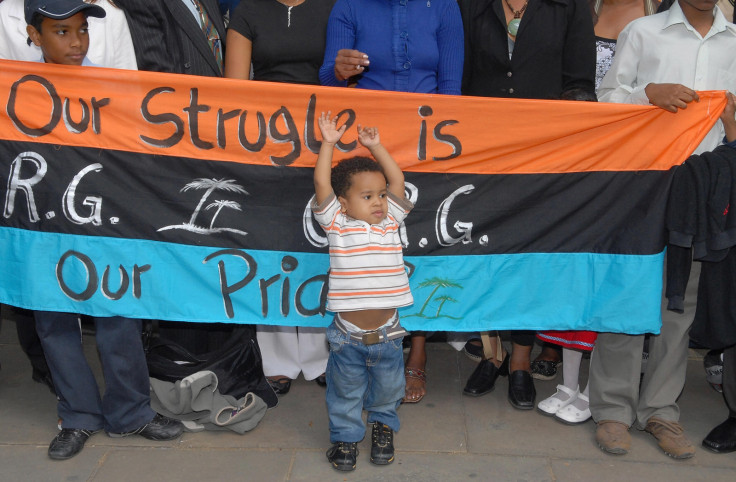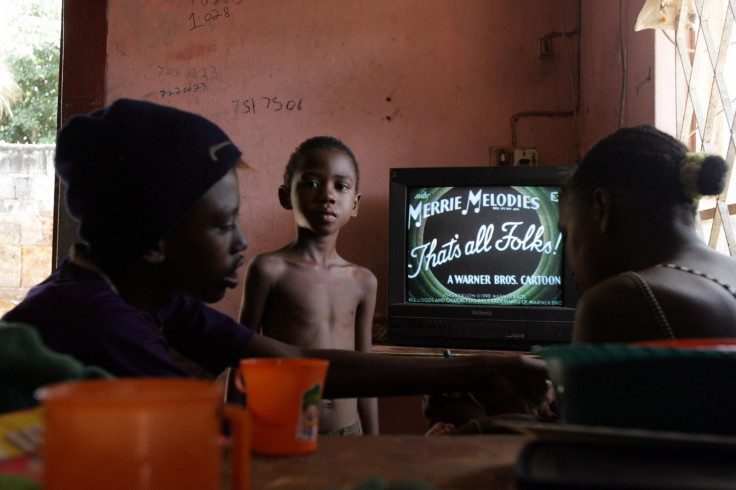Nobel laureates including Archbishop Desmond Tutu call on Barack Obama to bring justice to Chagos Islands
For 50 years, UK denied the right of return to resettle for Chagos people it forcibly deported in 1971.

Seven Nobel laureates, including South African social rights activist Archbishop Desmond Tutu, have called on US President and fellow Nobel Laureate Barack Obama to use his last days in office to help bring justice to the Chagossian people.
The Chagossians' ancestors first came to the Chagos Archipelago in the Indian Ocean as enslaved Africans and indentured Indians, during the 18th Century, and lived on the islands cultivating their own culture until their displacement.
Under a 1966 US/UK agreement, the US promised the UK $14m (£11.3m) for basing rights and the removal of all Chagossians from the Diego Garcia island, to make way for the construction of a US military base on the island in 1971. The archipelago is officially part of the British Indian Ocean Territory.
Deported from their homeland by the UK government assisted by US Navy personnel, thousands of Chagossians were sent 1,200 miles away to slums on the islands of Mauritius and the Seychelles between 1968 and 1973. The islanders, who never received any resettlement assistance, have been denied the right of return to resettle for the last 50 years.
In an open letter to Obama, who will be leaving office on 20 January when president-elect Donald Trump takes over, seven Nobel Prize laureates have urged him to help end the exile of the Chagossian people.
"In the last days of your presidency, we write to you as fellow Nobel Laureates to urge you to correct the historic injustice suffered by the Chagossian people, who have been living in impoverished exile for almost fifty years," the Nobel winners wrote in their joint letter.

Despite a UK-state funded study showing that resettlement is feasible, the UK Foreign Office in a long-awaited decision handed in November 2016 said it would not give the Chagossian people the right of return to resettle. Reasons put forward included resettlement cost, economic viability and the US army's objections.
"Only you now have the power to help the Chagossians return to their ancestral homeland and, in the process, cement your legacy as a defender of human rights," the Nobel Prize winners told Obama, stressing how they are not asking Obama to close or alter the US base. "[The Chagossians] are only asking to be allowed to return to their islands to live in peaceful coexistence with the base."
The laureates urge Obalam to take five steps to "rectify this historic injustice". These include:
- To publicly state that the US does not oppose the Chagossians returning to their islands
- To recognise Chagossians' basic right to live in their homeland with equal rights to compete for civilian jobs on the base
- To provide reasonable assistance for Chagossians' resettlement and assistance in seeking employment on the base
- To guarantee and enshrine these rights in the US/UK base agreement
- To begin direct negotiations with Chagossian representatives on these issues
The Peace Prize laureates include Tutu, Jody Williams who won the 1997 Peace Prize for her work in banning anti-personnel landmines, 1976 Peace Prize-winner and peace activist from Northern Ireland Mairead Maguire, and Yemeni rights activist Tawakkol Karman, who won the prize in 2011.
Other co-signatories include Dr Yu Joe Huang, Dr. Stephen P Myers and Dr Edward L Vine, who were awarded jointly the 2007 Nobel Peace Prize as members of the Intergovernmental Panel on Climate Change.
© Copyright IBTimes 2024. All rights reserved.






